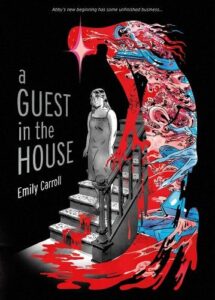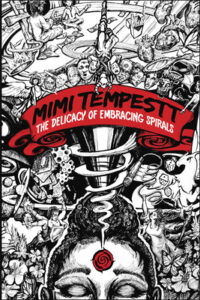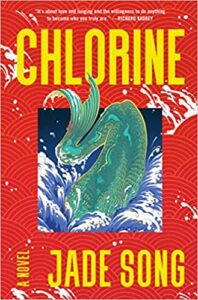Buy this from Bookshop.org to support local bookstores and the Lesbrary!
I’ve loved everything I’ve read by Emily Carroll, and A Guest In the House was no exception. The subdued, gothic scenes of the quiet horror of compulsory heteronormativity interspersed with technicolour dream sequences were extremely effective. I felt deeply for Abby, who seems to sleepwalk through her life, doing what’s expected of her, until she learns about her new husband’s deceased first wife, Sheila. Soon, Sheila is appearing to her in dreams and then even when she’s awake, casting doubts about whether her husband is responsible for her death. As Abby begins to doubt her husband, her careful quiet life unravels, and she goes to dramatic lengths to try to save herself from Sheila’s fate.
This was one of my favourite books I read in 2023. The artwork, as usual for Emily Carroll, is stunning. The story is unsettling and captivating. And that ending! I stayed up reading because I had to know what happened next, and then I finished the book not sure how to interpret those final pages. I ended up researching reviews to find different theories. When I woke up the next morning, I immediately picked it up and read it cover to cover again, and while I still have questions, I now have my own theories!
As I read through Goodreads reviews, I became aware of two things. One, people hate an ambiguous ending. And two, somehow many (most?) readers completely missed the queer content of this book, even though it’s not at all hidden. I ended up writing a whole post about this on my queer books newsletter with Book Riot, Our Queerest Shelves: “How Queer Does a Book Have To Be For It To Count?“
The description of the book mentions Abby being “desperately in love for the first time in her life,” which can only be referring to Sheila—she has no romantic or sexual interest in her husband. She imagines herself as a knight saving Sheila. She pictures Sheila in revealing clothing, and when the ghost of Sheila calls her out on it, Abby blushes and stammers. More importantly, (spoiler, highlight to read) Abby and Sheila kiss on the page!! It may be a little distracting that they’re murdering someone at the same time, but there’s a kissing scene! (end of spoilers) How can that be misinterpreted as straight?
I’m still a little frustrated that I didn’t hear about this being a queer book, despite researching queer new releases and already being a fan of Emily Carroll. As I said in my Our Queerest Shelves post, “It’s disappointing that we still live in a world where queer people are still apparently harder to see than ghosts.”
If you can handle an ambiguous ending and don’t need your queer reads to be light and happy, I highly recommend this one. It’s an absorbing story with such stunning artwork that I want to frame pages and hang them on my wall. Emily Carroll continues to be one of my favourite graphic novelists, and I can’t wait to read what she writes next.



